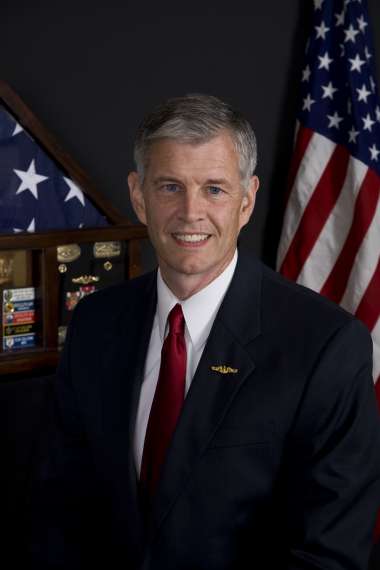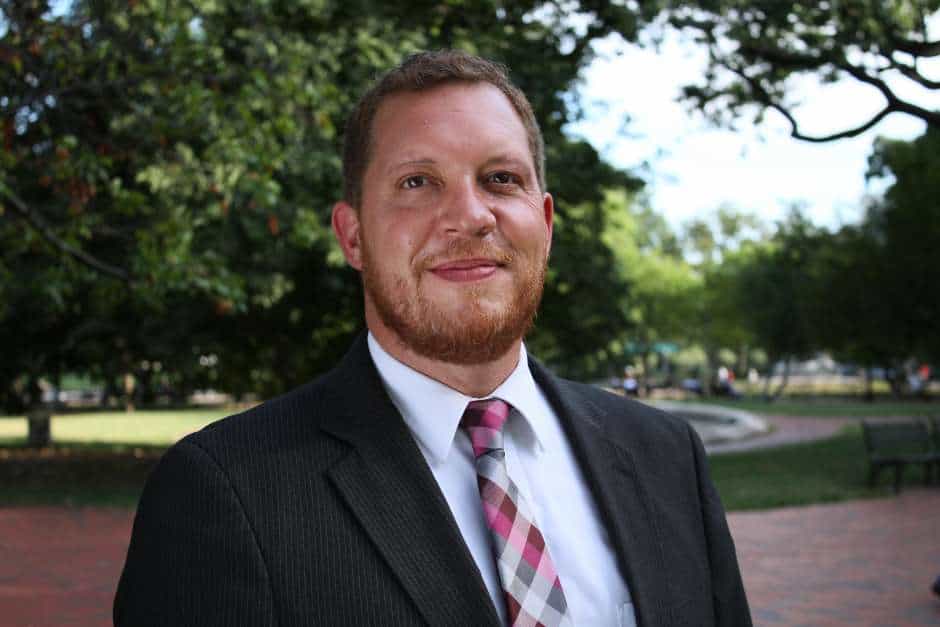Introduction

The chairman of a federal oversight agency responsible for safety at nuclear weapons facilities has stepped down amid turmoil over both his management and his recommendation to President Trump that the agency be abolished.
The Defense Nuclear Facilities Safety Board — chaired until this week by lawyer and marine engineer Sean Sullivan — is a tiny institution by federal standards, but has played a key role in tightening safety practices at nuclear weapons research and production facilities in Hanford, Washington, and Los Alamos, New Mexico, among others.
With an annual budget of $31 million and a staff that numbers about 110 — including 10 technical experts who inspect labs and factories nationwide — the organization is the only independent body responsible for overseeing work by the private companies that run the labs and factories making the most powerful weapons in the U.S. arsenal.
These contractors, which sometimes collect annual government-paid profits higher than the board’s budget, have frequently chafed at safety-related work slowdowns and stoppages. As a result, even though the board’s power is advisory — it cannot compel safety upgrades — the contractors’ allies in Congress have targeted the board with restrictions.
Sullivan — a former Navy submarine officer and longtime GOP board member who ascended to chairman with Trump’s election — has sparred regularly with board counterparts and repeatedly voted against sending specific safety warning notices to the Department of Energy, which finances work at the factories and labs.
Last summer, he provoked an uproar by telling the White House in a letter that the five-member board should be eliminated and its staff dispersed or retired. He sent the letter just as the Center for Public Integrity began publishing articles disclosing safety weaknesses and unpublicized accidents at nuclear weapons facilities.
“Although the Board may have been helpful in providing for the adequate protection of public health and safety during its early years, that value today is provided only on the margins,” Sullivan wrote. He called the panel “a relic of the Cold-War era defense-establishment.”
The three Democrats on the board swiftly wrote dissenting letters, members of Congress raised concerns, and staff expressed opposition in meetings with Sullivan. The Center disclosed his letter in an Oct. 19 article.
In a brief Jan. 19 resignation letter to board personnel, Sullivan said he was leaving “to pursue other interests” but alluded to the internal turmoil. “Our fine staff deserves to be led by an executive the staff believes in,” Sullivan wrote. He did not return messages seeking comment.
An annual employee survey reflecting Sullivan’s time as chairman, released last October, showed 28.5 percent of respondents believed the board’s “senior leaders maintain high standards of honesty and integrity,” a percentage even lower than the 32.5 percent rating given to a predecessor in 2014. In the same survey, just 17.9 percent of the board’s staff reported having a high level of respect for the board’s senior leaders, compared to 23.4 percent in 2014.
In fact, among 38 federal agencies with fewer than 1,000 employees, satisfaction among Defense Nuclear Facilities Safety Board staff ranked dead last in recently released rankings of worker satisfaction within government during 2017.
It’s not the first time that the board – whose safety prescriptions can cost contractors tens of millions of dollars — has been battered by internal fighting.
Sullivan once cited similar staff unhappiness in a September 2014 letter to then chairman Peter Winokur demanding that Winokur step down. “The mission of this agency is vital to our nation. Poor leadership has damaged the agency’s ability to perform that mission,” Sullivan wrote in his letter to Winokur, obtained by the Center for Public Integrity under the Freedom of Information Act. “Without new leadership, the agency will continue to degrade.”
Winokur, a Democrat whose professional experience included serving on the staff of former Sen. Harry Reid, D-Nev., fired back at the time with a letter to board members saying he had “grown increasingly uneasy about [Sullivan’s] abusive behavior and language towards staff and fellow Board members.” But Sullivan got his wish in January 2015, when Winokur retired.
Sullivan later admitted, in an Oct. 5, 2015, letter to a board colleague, that he had engineered Winokur’s departure. “I came to the conclusion that Peter had to go,” Sullivan wrote, “and he had to be pushed. Everything I did, I did with one objective: to make Peter Winokur go home.”
The Trump administration has been silent on whether it will follow Sullivan’s advice to shut down the Defense Nuclear Facilities Safety Board altogether. Multiple sources familiar with the budget process said work on funding the agency for fiscal year 2019 has progressed normally, indicating the Trump administration, at least for now, intends to keep the board going.
Sullivan handed off chairmanship of the five-member board to his fellow Republican, Bruce Hamilton, who will be outnumbered 3-1 by Democrats until the Senate confirms Sullivan’s replacement. The Trump administration has not announced its nominee.
Hamilton also stirred controversy among board employees in 2017. After a closed-door meeting in October, then-National Nuclear Security Administration Administrator Frank Klotz urged safety board members to stop publicly publishing periodic reports on safety problems at contractor-run facilities, on grounds that embarrassing publicity was unhelpful. Hamilton drafted a formal proposal to hide the reports from the public, but backlash from the board’s technical experts and inspectors compelled him to withdraw the proposal before the board voted on it, several officials said.
Before he was appointed to the board by President Obama in August 2015, Hamilton was president of FuelCo LLC, a nuclear fuel company that engaged in uranium transactions with Russia.
Read more in National Security
Nuclear Negligence
Los Alamos would lose some future bomb production under new Trump administration plan
In a decision involving billions of dollars, two sites, not one, would make plutonium cores for nuclear weapons, with most of the work being done in South Carolina instead of New Mexico
Nuclear Negligence
Key sites proposed for nuclear bomb production are plagued by safety problems
Billions of dollars are at stake in a forthcoming Trump administration decision, but contender sites Los Alamos and Savannah River have struggled to handle plutonium safely

Join the conversation
Show Comments